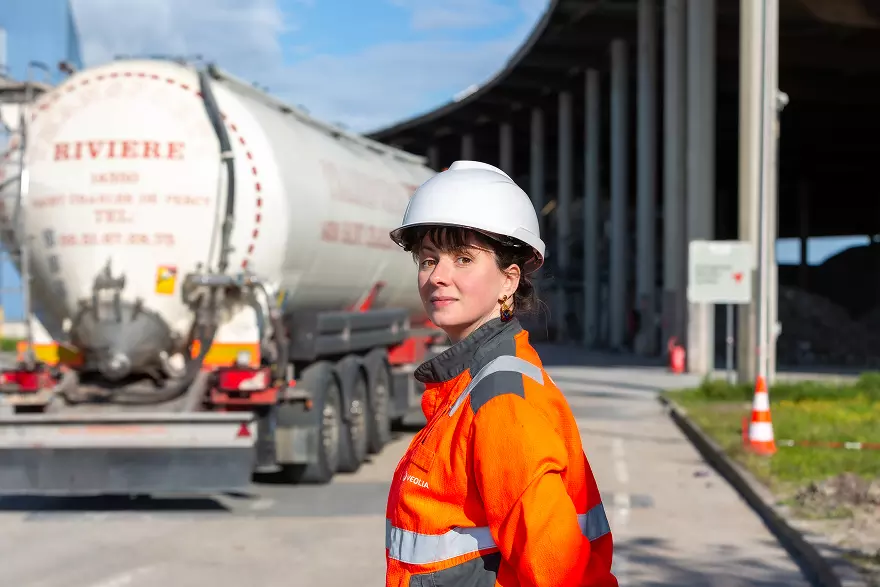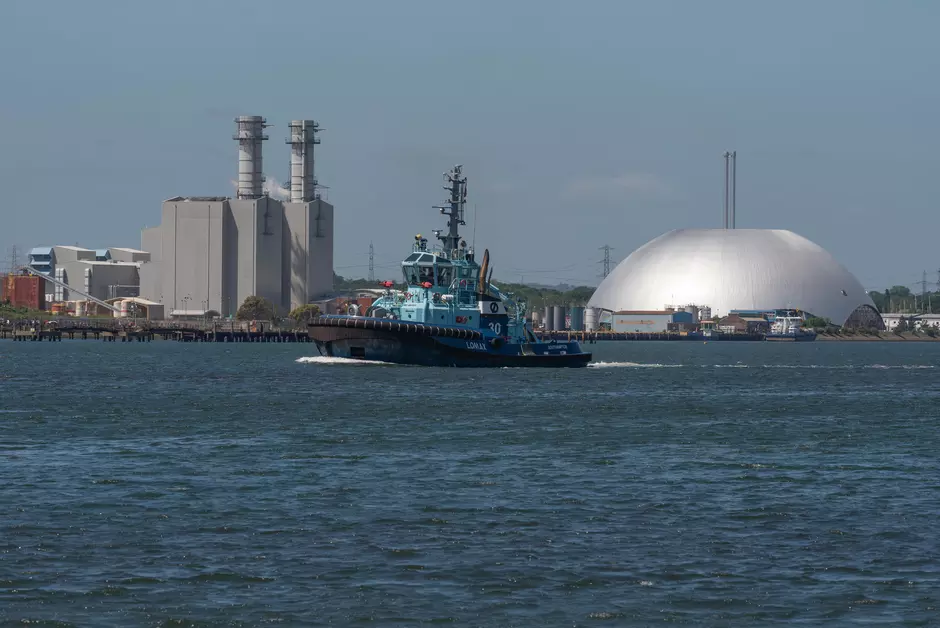Veolia's partnership with the ABP Southampton
Southampton, a major port in the UK, is home to the country's leading automotive export operations and is also recognised as Europe's premier turnaround cruise port. Annually, it serves approximately three million passengers, prioritising their comfort above all else. These passengers travel on an average of 500 cruise ships so one of the port's biggest challenges lies in safely and sustainably handling the waste from the ships whilst performing efficient and swift turnarounds to welcome the next round of passengers.
The waste generated from the ships includes mixed recycling, hazardous waste and bulk liquid. Our integrated energy recovery facility (ERF) and waste transfer stations (WTS) at Marchwood, strategically located near Associated British Ports (ABP) Southampton, minimises vehicle movements, thereby reducing emissions and ensuring the secure disposal of all waste.
Veolia Marchwood is a one stop shop for marine waste management and is currently the only facility of its type in the UK.
The Challenge at ABP Southampton: Complex Multi-Stream Waste Management While Maintaining Public Perception
ABP Southampton was looking for a holistic solution for their diverse waste streams from numerous different services such as cruise ships, terminals and port operations. When they approached us at Veolia we began developing a bespoke plan to help them manage large volumes of waste that arrives on a daily basis, while reducing their carbon footprint and environmental impacts. All of this had to be achieved whilst meeting strict environmental regulations and compliance requirements for ports. Considering public perception, and the increased waste generated by a growing number of tourists, Veolia faced a unique challenge.

Veolia's Integrated Waste Management and Energy Recovery Solutions for Cruise Ship Operations
Our Marchwood Energy Recovery Facility (ERF) was built in 2004 and for over 20 years, the facility has been serving Southampton and the surrounding areas by processing waste and generating electricity which is fed into the national grid.
The 500 cruise ships being turned around each year require cleaning and the removal of all waste before they’re ready to go back out on the next adventure. The ships will be resupplied, often refueled and then receive thousands more passengers ready for the next cruise, setting sail in the late afternoon. To help facilitate a successful turnaround Veolia has a unique service offering in the form of two dedicated barges which collect the waste on the outboard side of the cruise ship. This helps keep the quayside clear for the very busy turnaround activities and avoids passengers having to interact with waste.
General waste from the cabins and public areas is transferred to our Marchwood ERF along with food waste which is classified as International Catering Waste which means it can’t be recycled, as enforced by DEFRA. Hazardous waste, bulk liquids and mixed recycling are transferred directly from the ships into the treatment site next door. Bulk liquids are processed at the oil recovery plant and biological water treatment plant where oil water mixtures are recycled. Mixed recycling and hazardous waste are separated for appropriate treatment or recycling.
How Veolia helped ABP Southampton through Marchwood
Since 2004, the Marchwood Facility accepts 220,000 tonnes of waste per year, making it an ideal facility for cruise ships and has transformed this into enough power to run approximately 22,600 local homes. In 2021 the Energy Recovery Facility (ERF) achieved 99% availability meaning it was operating and providing energy 24/7.
A critical priority for ABP Southampton was implementing effective waste management solutions to handle the complex waste streams generated by cruise ships whilst maintaining a safe harbourside for the millions of visitors each year. Our tailored solutions include solid waste management, hazardous waste handling of materials such as oils and chemicals, and bespoke methods of transporting waste from the ships. We’re also helping to bolster the circular economy across their ships and improving the passenger experience by removing waste swiftly and safely whilst prioritising environmental compliance standards.

At Veolia, we take pride in our work and are committed to providing our customers with an exceptional service to deliver a sustainable future. Read the testimonial from ABP (Associated British Ports) to hear about our success first-hand.
“The Port of Southampton is a well-established cruise hub, and at ABP, we take pride in collaborating with our partners to deliver premium services to our customers. Veolia is a key partner in delivering and implementing ABP’s Port Waste Management Plan, assisting ABP in providing port waste reception facilities for all vessels that visit.
Veolia’s service covers general waste, glass, and dry-mixed recycling, various hazardous waste streams, and international catering waste, to support customers’ sustainability initiatives. Each year, Veolia collects and diverts nearly 25,000 tonnes of ships' waste from landfill. Working closely with ABP’s marine operations teams, Veolia helps plan and schedule waste barge collections. They operate the largest waste barge service in Europe, efficiently transporting waste from vessels to their facility at Marchwood, on the southern bank of the River Test. This solution enables cruise lines and other vessels to discreetly offload waste at the waterside, reducing congestion on the quayside. As a result, stevedoring operations become more efficient, and overall safety is improved by minimising quayside activity.
Veolia also assists ABP by professionally and safely disposing of hazardous waste produced by our maintenance and operations teams. This includes oil waste, liquid fuel waste, aerosols, pressurised containers, batteries, and Waste Electrical and Electronic Equipment (WEEE).”
Do you have similar challenges?
Contact our team of experts for solutions tailored to your organisation


